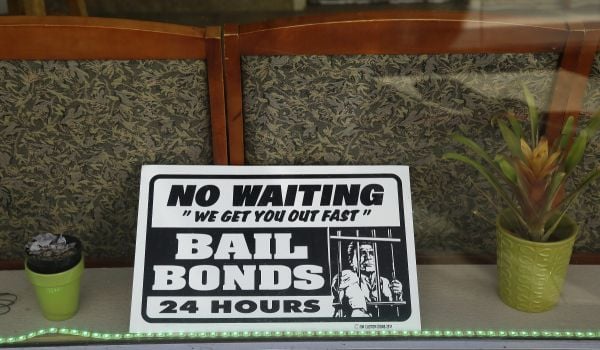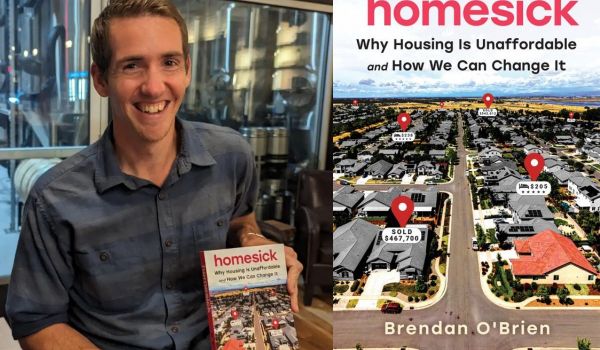This week at San Francisco’s Marines’ Memorial Theatre, the “sharing economy” will continue its speedy shift from the economic and cultural fringe to being something grandparents name-drop in conversation and kids imagine always existed. The event: a two-day conference being held under the banner of “SHARE: Catalyzing the Sharing Economy” that may well mark the first moment that a critical mass of the U.S.‘s collaborative consumption community gathers in one place to, well, share.
Why now? Milicent Johnson is the director of partnerships and community building at Peers, the year-old non-profit that is co-hosting SHARE with the social investing organization SOCAP. “When I started working in the sharing economy,” she says, “people would say, ‘The what now? The who?’ But now it’s front page news. We’re at this critical inflection point where the sharing economy has come of age of sorts, but it has a lot more growing up to do.” This week is “the perfect time to bring the community together to dive deep.”
As for what they’ll be diving into, Johnson says that the conference will tackle everything from who’s sharing exactly and why, to the future of work, from techniques for building sustainable peer-to-peer marketplaces to making sure that the sharing economy is marked by “access and equity.” There will be a bit of time, too, dedicated to thinking through how collaborative consumption can bolster disaster preparedness.
Organizers are expecting about 400 attendees, what Johnson calls “an interesting hodgepodge” that includes people who sustain themselves through the sharing economy, city government representatives, philanthropists, corporate folk like insurance industry officials, and others. Those slated to participate in panels and plenaries include Airbnb CEO Brian Chesky, Adam Werbach of the online free marketplace Yerdle, thinkers like NYU professor and Arun Sundararajan (who’s often quoted as a sharing economy expert) and “the sharing lawyer” Janelle Orsi, high-profile Silicon Valley and Silicon Alley funders like famed angel investor Ron Conway and Union Square Ventures’ Brad Burnham, and civic society leaders like Color of Change’s Rashad Robinson.
What SOCAP — short for “social capital” investing — brings to the table, says Johnson, is experience in bringing people together to see the potential in shared opportunities and telling stories around them. Traditionally, says Kevin Jones, a SOCAP co-founder, those opportunities have leaned toward things like kerosene-replacing solar panels in Uganda or smart-phone banking for the unbanked in the United States. “Investing in the public good while investing in your private good,” says Jones, has been an opportunity “worth about $50 billion a year.”
Meanwhile, Airbnb alone was valued this winter at $10 billion, which helps explain why Jones is eager to point out “a great overlap between the ethos of the sharing economy and the ethos of impacting investing.” The pitch he says he’ll be making to sharing-economy companies runs along the lines of “our investors will get your value proposition in a way that typical investors won’t.”
And the pitch to investors gathered at SHARE: “This is a space where we’ve learned from working on investing in communities and listening to people is mainstream.”
For SOCAP’s part, Jones says that he sees a great deal of value in simply having a chance to partner with Peers, which suggests the meta-relevance of this week’s summit. Peers launched in late July as what Foster described at the time as “a container” for those participating in the sharing economy. Jones puts it plain: “Peers brings together people who don’t speak to each other most of the time.”
And increasingly what Peers brings people together to discuss is ways to combat the movements in cities and towns to crack down on the sharing economy, as it did with a city commission proposal in Grand Rapids, Michigan, that would have limited room-sharing in the mode of Airbnb. “Peers,” says Jones, “de-risks the market one City Hall at a time.”
That desire to back Peers is part of why, volunteer slots and scholarships aside, full-price, two-day tickets for SHARE are a hefty $795. “We think they’re essential,” says Jones of Peers. Co-hosting the conference was a way of helping them to raise funds without having “a gala or a campaign.”
Milicent Johnson, the conference organizer, describes something even more fundamental at work. “It’s really important that we have a conversation,” she says, “that both helps provide some institutional wisdom and understand where we are now, but really that also helps to inform the future. If it’s just a train barreling down the track, and there’s not conversations about some of the challenges then potential opportunities might not happen.”
In that, they’re aiming to pull off something that defines longer-standing, big-name conferences like SXSW or TED or Web of Change: the chance to define and strengthen the community’s ethos and values set. As Johnson sees the sharing economy, the ties that bind go far beyond common experience in accessing shared resources. What gatherers at SHARE will have in common, she says, are the “vulnerability, empathy and agency” that comes with sharing everything from rides in your car to your leaf blower to excess cash as micro-loans, “the three things that together shift what people think they’re capable of.”
That’s only a rough sketch of the sharing economy’s story, Johnson admits. But they hope to do considerable work fleshing it out this week.

Nancy Scola is a Washington, DC-based journalist whose work tends to focus on the intersections of technology, politics, and public policy. Shortly after returning from Havana she started as a tech reporter at POLITICO.













